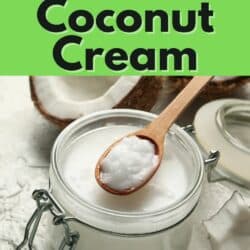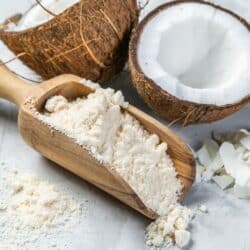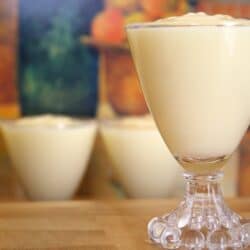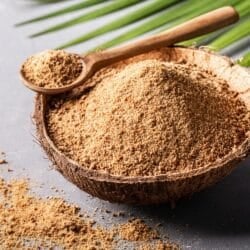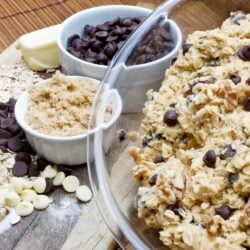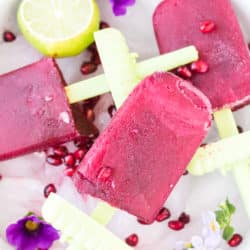7+ Substitutes for Coconut Cream (Cooking & Baking)
Coconut cream is an excellent ingredient for cooking and baking. But what happens if you run out of it or you can’t find it at the store? Here are some substitutes for coconut cream including coconut milk, heavy whipping cream, tahini, Greek yogurt, evaporated milk, soy milk, and coconut butter. Find the pros and cons of each alternative, plus how much to use.
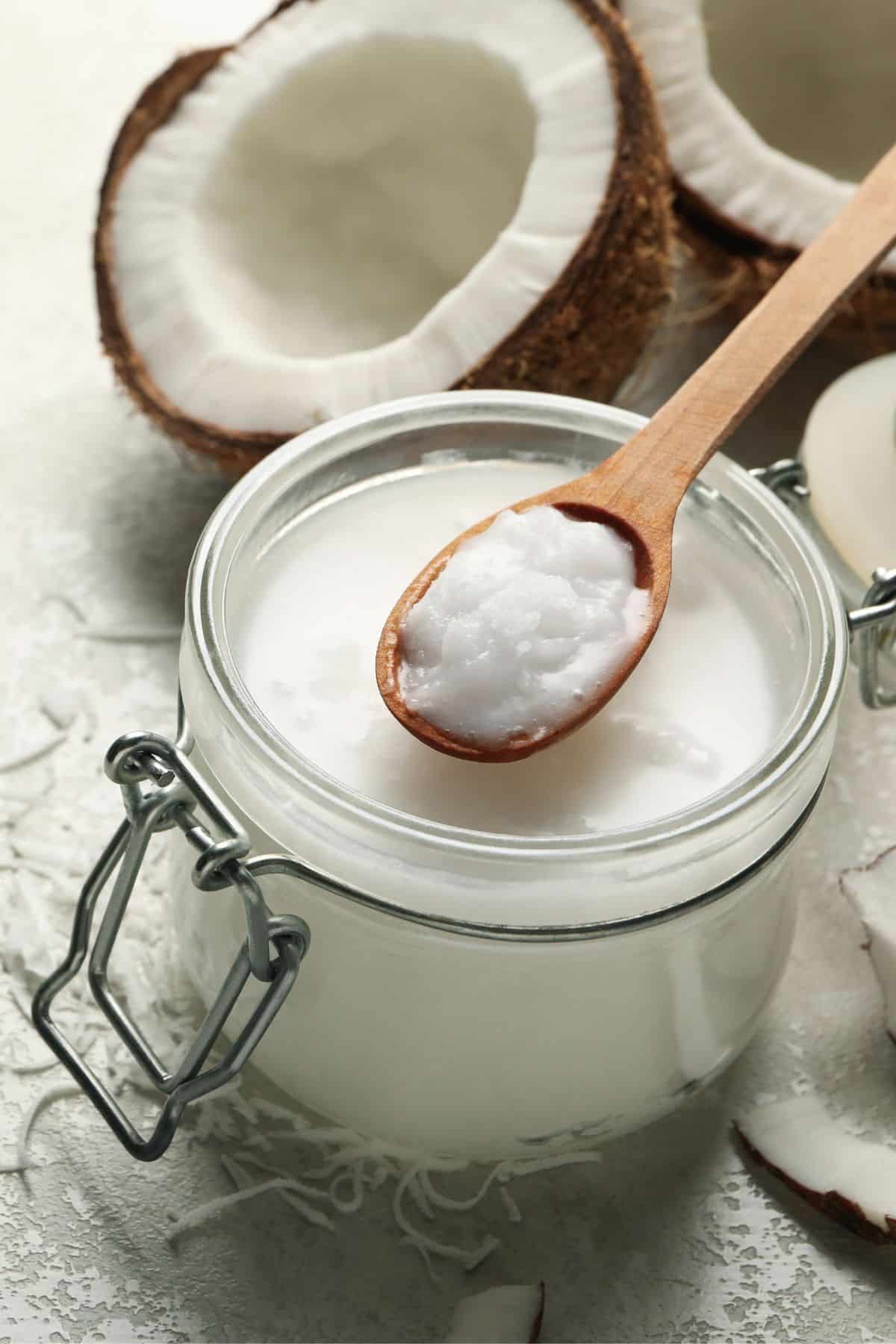
Coconut cream is dairy-free and has a rich, creamy texture and a slightly sweet, nutty flavor. It’s often used as a substitute for heavy cream, although it has a much naturally sweet taste than cream.
Coconut cream is also known as cream of coconut and usually comes in a can at the grocery store.
Coconut cream is an excellent source of dietary fats and it’s also a good source of vitamins and minerals, including B vitamins, vitamin C, and magnesium.
Coconut cream can be used in a variety of ways, including as a dairy-free alternative to cream in coffee or baking. It can also be used as a base for soups, stews, curries, and other sauces.
Coconut Cream Substitutes
If you are trying to make a recipe that calls for coconut cream but you don’t have it on hand, here are the best substitutes you can use instead, plus how much you’ll need.
For best results, try to adapt the substitute to the type of recipe you are making.
1. Coconut milk
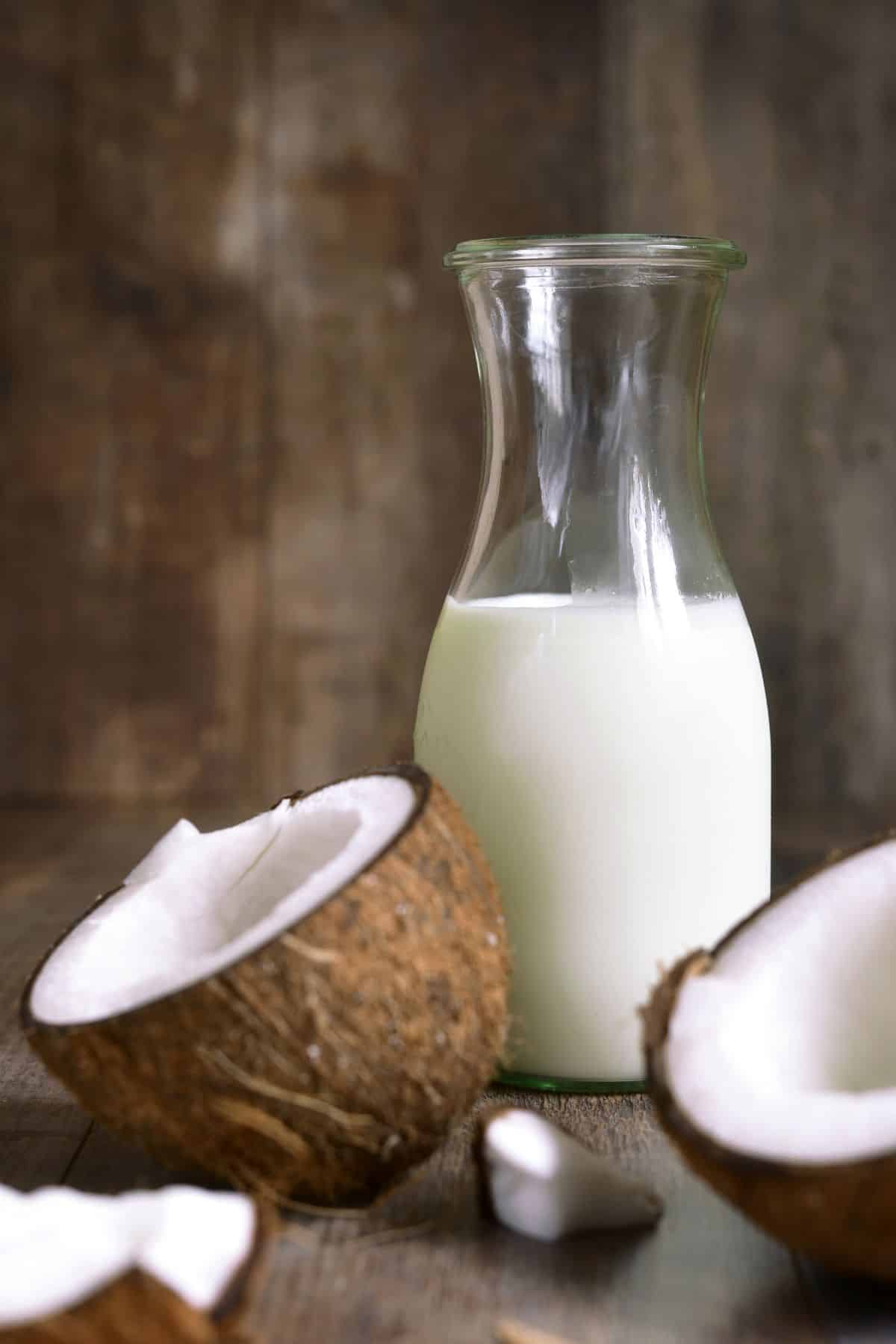
Coconut milk is a liquid made from the flesh of coconuts. It is white and creamy, with a slightly sweet taste.
Coconut milk is rich in vitamins and minerals, including potassium, magnesium, and iron. It’s also a good source of fiber and healthy fats.
Coconut cream is thicker and richer than coconut milk because it contains less water. It also contains more fat, which gives it a higher calorie content.
Canned coconut milk is a great alternative to coconut cream, with just a slightly thinner consistency. It’s excellent in curry recipes or drinks like pina colada.
To substitute one tablespoon of coconut cream, use one tablespoon of coconut milk.
2. Heavy whipping cream
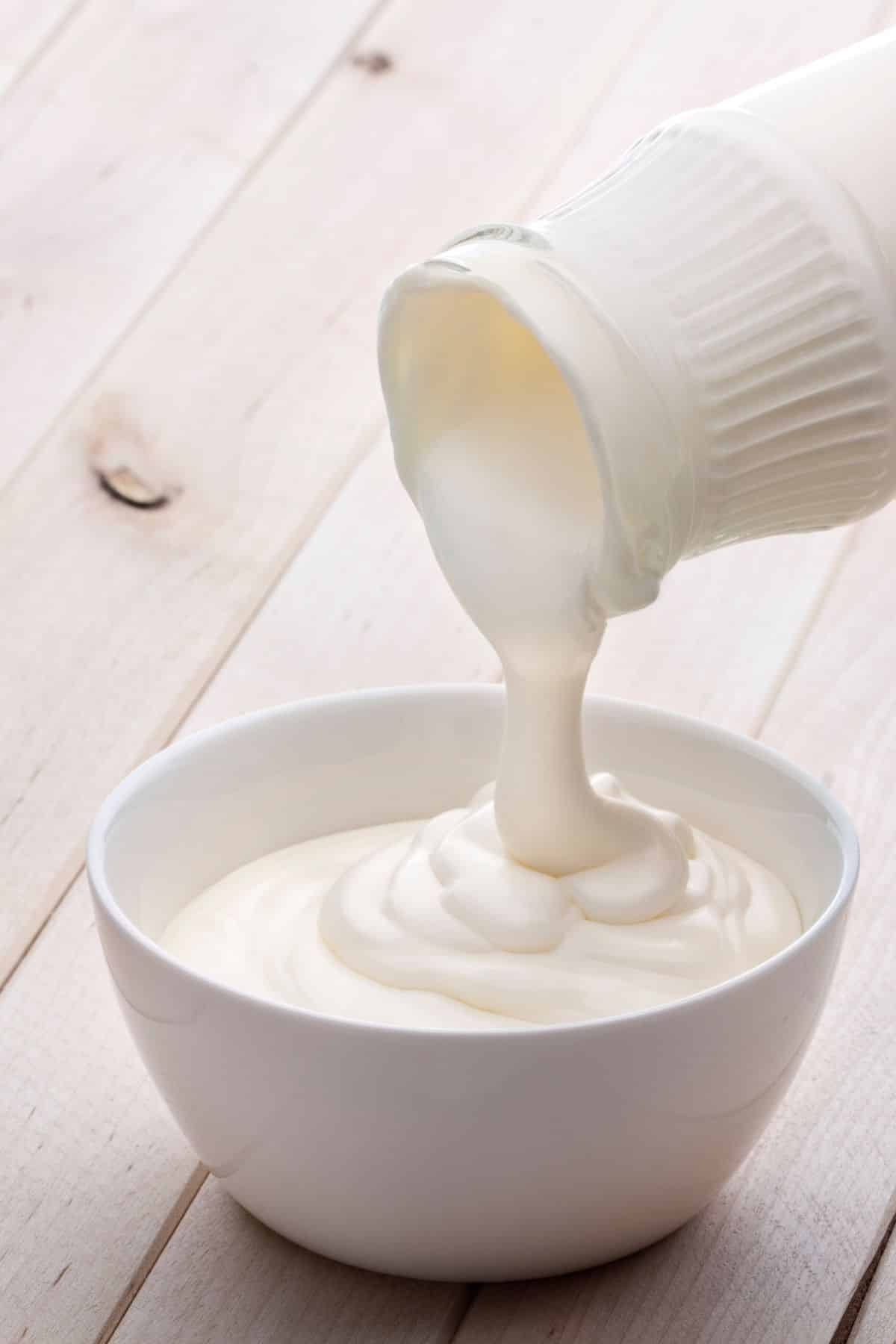
Heavy whipping cream is often used in baking and cooking.
It is made from the high-fat content milk of cows. Heavy whipping cream contains no added stabilizers or emulsifiers which makes it ideal for whipping and creating stable whipped cream. It can also be used to make ganache, buttercream frosting, and ice cream.
Heavy whipping cream is higher in fat than dairy cream or coconut cream, but it also has a higher percentage of milk solids, which gives it a rich flavor. It should be noted that heavy whipped cream is made from cow’s milk, so it is not appropriate for vegan or dairy-free diets.
When it comes to texture, heavy whipping cream is very thick, while coconut cream is thinner and smoother.
To substitute one tablespoon of coconut cream, use one tablespoon of heavy whipping cream.
Depending on the texture you want, you may want to add a teaspoon of water to the heavy whipping cream and adjust as needed.
Please note that heavy whipping cream is not suitable as a dairy-free alternative for a vegan diet.
3. Tahini
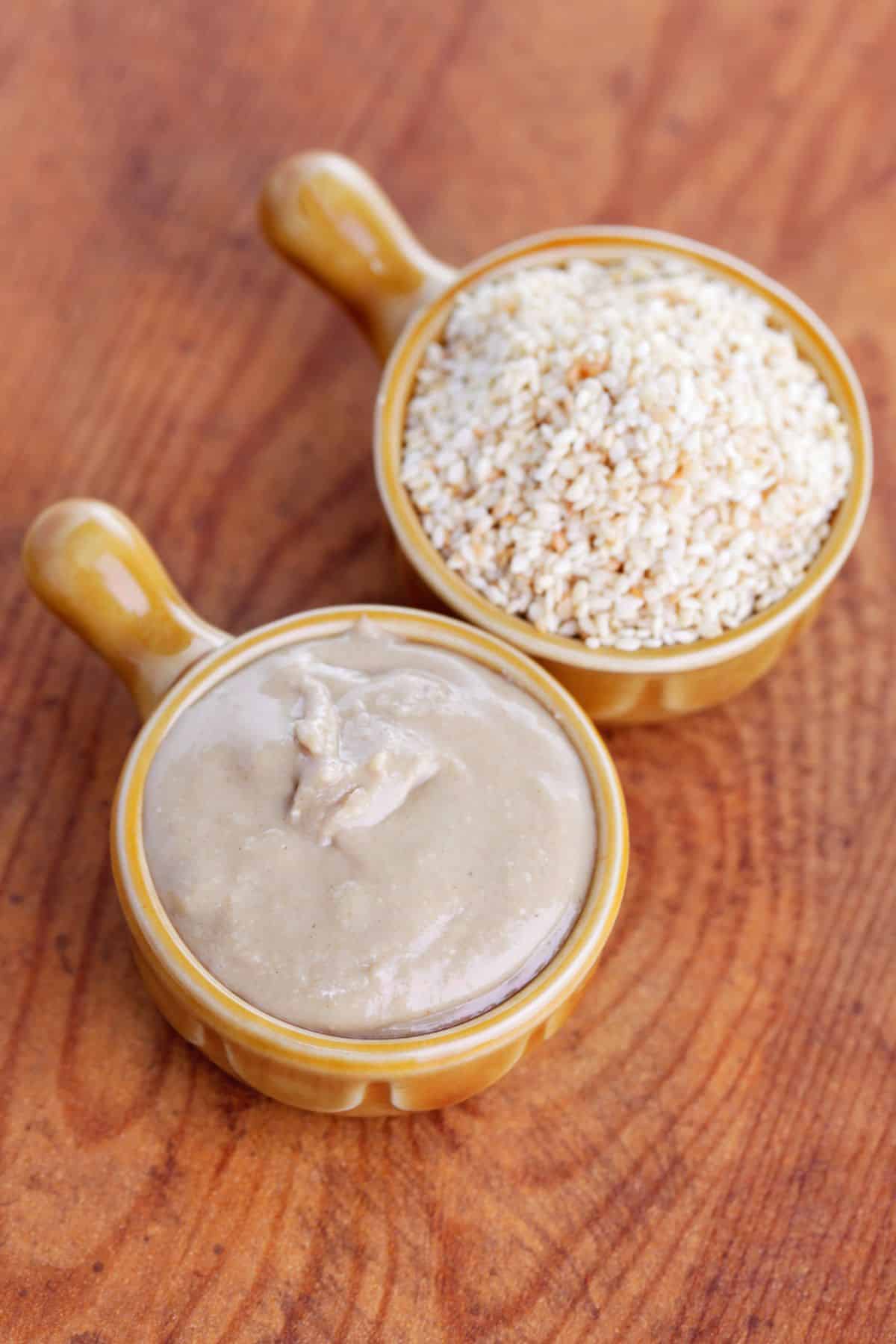
Tahini is a delicious paste made from ground sesame seeds. It has a nutty flavor that can enhance both sweet and savory dishes.
Tahini is a key ingredient in many Middle Eastern and Mediterranean recipes and can also be used as a spread on bread or crackers, or as a dip for vegetables. In addition to its culinary uses, tahini is also rich in nutrients. It is a good source of protein, fiber, and healthy fats.
Tahini has a nutty flavor, while coconut cream has a sweet, tropical flavor. In terms of texture, tahini is smoother than coconut cream with a very creamy texture.
Coconut cream also has a higher fat content than tahini, making it richer and more luxurious. When substituting, I recommend adding water to the tahini to reach the desired consistency.
To substitute one tablespoon of coconut cream, use one tablespoon of tahini with a bit of water.
4. Greek yogurt
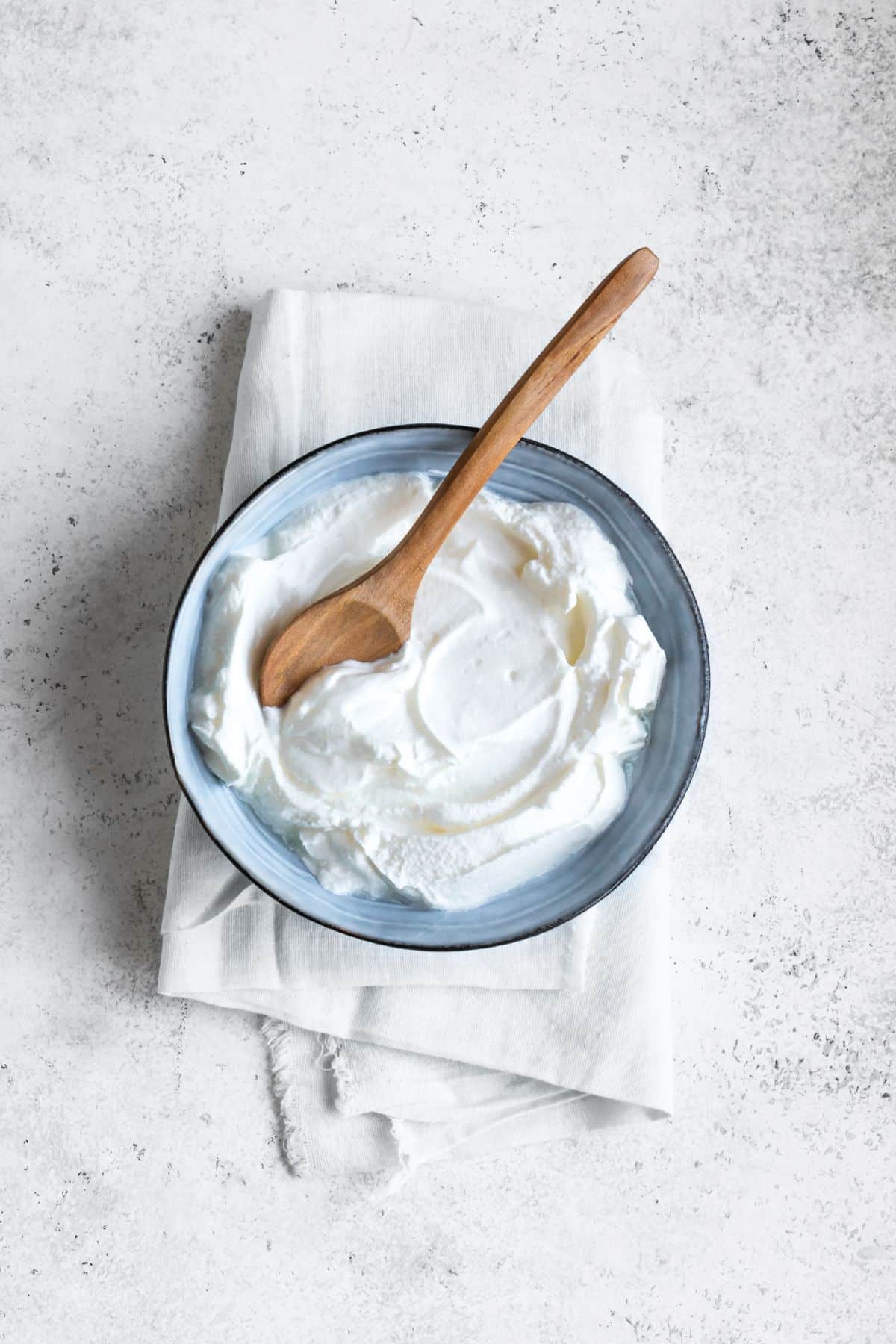
Greek yogurt is a type of yogurt that is made by straining out the whey, resulting in a thicker, creamier product. It has become popular due to its higher protein content and its versatility in cooking.
It can also be eaten on its own as a snack or breakfast food.
Greek yogurt is lower in fat than coconut cream, and it also contains live and active cultures that may help to promote gut health. Coconut cream is sweeter than Greek yogurt and so you need to take that into account if you are making sweet recipes.
To substitute one tablespoon of coconut cream, use one tablespoon of Greek yogurt.
Greek yogurt is made from dairy products so it’s not a great substitute if you are dairy-free. You can, however, use a coconut-based yogurt as a good substitute for coconut cream.
5. Evaporated milk
Evaporated milk is made by removing water from milk until it is about 60% milk solids and 40% water. It has a similar nutrition profile to whole milk.
The main difference is that evaporated milk has a more concentrated flavor, making it ideal for baking and cooking. When used in baking, evaporated milk helps to create a moist and tender crumb. It can also be used in place of cream or coconut cream in recipes.
Evaporated milk is much lower in fat than coconut cream, and it also has a sweeter taste because the evaporation process concentrates the sugars in the milk.
Evaporated milk is also made from cow’s milk, so it is not appropriate for vegan or dairy-free diets.
To substitute one tablespoon of coconut cream, use 1/2 tablespoon of evaporated milk.
6. Soy milk
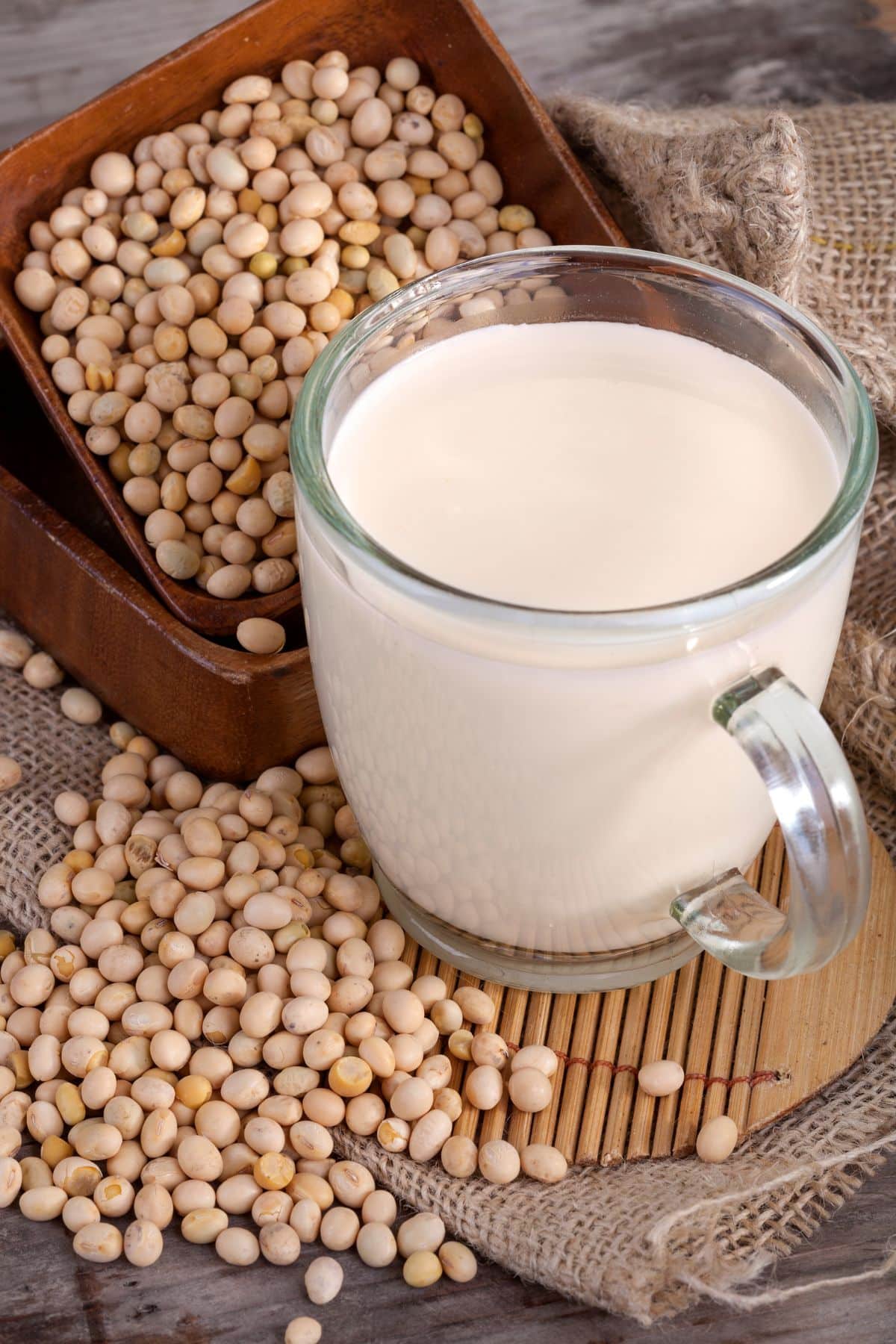
This plant-based milk is a type of milk that is made from soybeans. Soy milk is a good source of protein, vitamins, and minerals. It also contains no cholesterol and is low in saturated fat.
Coconut cream and soy milk have different tastes and textures. Coconut cream is richer and more flavorful than soy milk, but it also contains more saturated fat.
Soy milk is a decent substitute for coconut cream, but it’s not ideal. It has a higher water content so it’s not an exact coconut cream alternative. However, it can be used in a pinch.
To substitute one tablespoon of coconut cream, use one tablespoon of soymilk.
7. Coconut butter
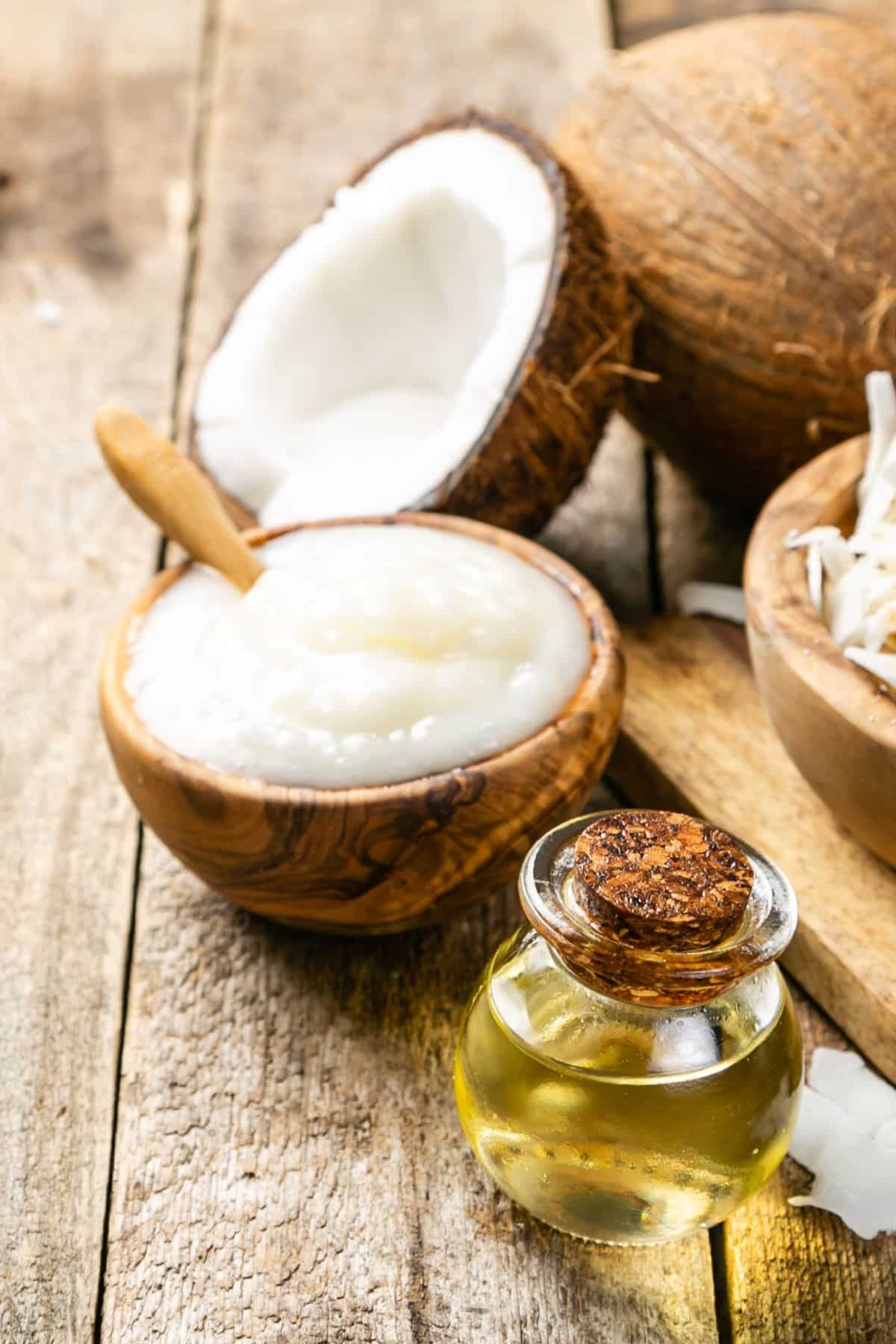
Coconut butter is a delicious, versatile ingredient that can be used in sweet and savory dishes alike. It has a rich, creamy texture and a mildly sweet flavor that is reminiscent of coconuts.
Coconut butter is a good source of healthy fats, vitamins, and minerals. It is also high in fiber and low in sugar. It can also be used as a spread on toast or in stir-fries and curries.
Coconut butter is generally less sweet and less flavorful than coconut cream. But, it’s a decent option as a coconut cream alternative and will give the same coconut flavor as coconut cream.
To substitute one tablespoon of coconut cream, use one tablespoon of melted or softened coconut butter.
8. Bonus substitutes
In addition to the options above, you can also use foods like silken tofu, almond milk, sour cream, cashew cream, oat milk, and regular milk instead of coconut cream.
Adjust the ratios based on the recipe you are making.
Pros and Cons of Coconut Cream Substitutes
| Substitute | Pros | Cons |
|---|---|---|
| Coconut Milk | Similar flavor profile; rich in vitamins and minerals | Thinner than coconut cream; contains less fat |
| Heavy Whipping Cream | Rich, creamy texture; no added stabilizers or emulsifiers | Not vegan or dairy-free; higher in fat |
| Tahini | Nutty flavor; rich in protein, fiber, and healthy fats | Different flavor profile; smoother texture |
| Greek Yogurt | Higher in protein; promotes gut health | Lower in fat; contains live cultures |
| Evaporated Milk | Concentrated flavor ideal for baking; creates moist texture | Lower in fat; sweeter due to concentrated sugars; not dairy-free |
| Soy Milk | Good source of protein, vitamins, and minerals; low in saturated fat | Different tastes and textures; less rich |
| Coconut Butter | Rich, creamy texture; good source of healthy fats, vitamins, and minerals | Less sweet and flavorful than coconut cream |
FAQs
Coconut water is not a good substitute for coconut cream as it is not creamy.
Yes, coconut cream can be used as a dairy-free alternative to heavy cream in many recipes. Its thick consistency and rich texture make it suitable for soups, sauces, desserts, and more. However, it imparts a coconut flavor, which might not be ideal for all dishes.
If you’re out of coconut cream, a good alternative for curry recipes is full-fat canned coconut milk. It’s thinner than coconut cream but can still provide a creamy texture and coconut flavor. For a thicker consistency, let the coconut milk simmer and reduce a bit before adding it to your curry.
For vegan recipes, heavy cream isn’t suitable as it’s dairy-based. Instead, use one of the other plant-based substitutes listed above such as tahini, coconut butter, or soy milk.
More Articles About Substituting Ingredients
Conclusions
There are many different substitutes for coconut cream that can be used in baking and cooking. Each of these substitutes has its own unique flavor and texture. When choosing a substitute, it is important to consider the recipe you are making and what flavor profile you are trying to achieve. With a little bit of trial and error, you will be able to find the perfect substitute for your needs.
Don’t forget to join my newsletter list to get exclusive clean eating recipes and tips. The newsletter is 100% free with no spam; unsubscribe anytime.
About the Author: Carrie Forrest has a master’s degree in public health with a specialty in nutrition and is a certified holistic nutritionist. She is a top wellness and food blogger with over 5 million annual visitors to her site. Carrie has an incredible story of recovery from chronic illness and is passionate about helping other women transform their health. Send her a message through her contact form.


